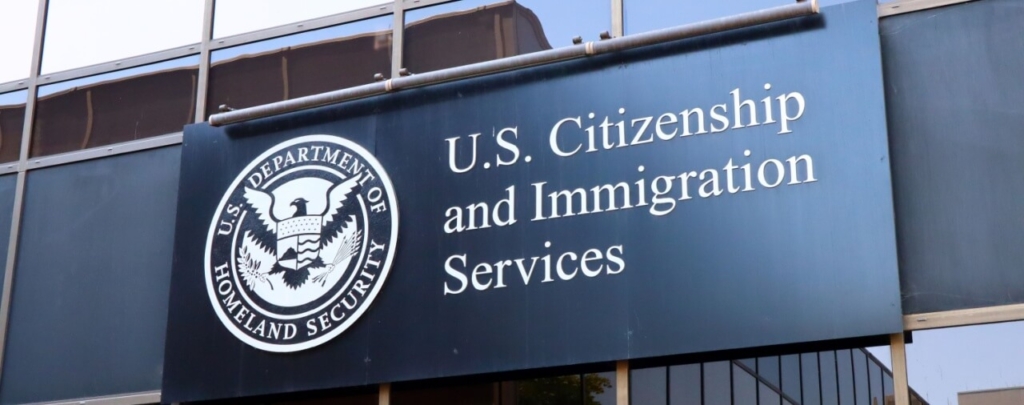Introduction
On January 27, 2020, the Supreme Court of the United States stayed a universal injunction entered by the United States District Court for the Southern District of New York (SDNY) against the Department of Homeland Security’s (DHS’s) new public charge rule. The Supreme Court’s decision will allow the Government to implement its new public charge rule in every state except Illinois, where the rule is enjoined statewide.
We discuss the practical effect of the order for those who may be subject to the public charge ground of inadmissibility in a separate post [see blog]. In this post, we will briefly examine an interesting concurring opinion authored by Justice Neil Gorsuch, and joined by Justice Clarence Thomas, inveighing against the increasing tendency of district court judges to enter universal injunctions, preventing the Government from implementing a policy nationwide.
You may read the Court’s order and Justice Gorsuch’s concurring opinion here [PDF version].
The Concurring Opinion
Five of the nine Justices of the Supreme Court — John Roberts, Clarence Thomas, Samuel Alito, Neil Gorsuch, and Brett Kavanaugh — voted to grant the Government’s motion to stay the injunction against the implementation of the public charge rule. We will be discussing a concurring opinion authored by Justice Gorsuch and joined by Justice Thomas explaining their reasoning for voting to grant the Government’s motion.
Justice Gorsuch began by noting that plaintiffs bringing suit against the public charge rule “urged courts to enjoin the rule’s enforcement not only as it applies to them, or even to some definable group having something to do with their claimed injury, but as it applies to anyone.” That is, they sought not only relief for themselves, but also to prevent the Government from imposing the rule anywhere. Justice Gorsuch traced the history of the various court challenges. District courts in California, Washington, and Maryland imposed universal injunctions, only to have the injunctions stayed by appellate courts. Meanwhile, the Second Circuit ruled against the Government’s motion to stay the SDNY injunction, which was the instant issue before the Supreme Court. The United States District Court for the Northern Illinois enjoined the rule only in Illinois. Regarding the various injunctions and subsequent litigation, Justice Gorsuch wrote: “If all of this is confusing, don’t worry, because none of it matters much at this point.”
Justice Gorsuch proceeded to criticize the universal injunctions that had been entered against the public charge rule, describing the SDNY injunction as “a single judge in New York enjoin[ing] the government from applying the new [public charge] definition to anyone, without regard to geography or participation in this or any other lawsuit.” Speaking more broadly, Justice Gorsuch wrote: “The real problem here is the increasingly common practice of trial courts ordering relief that transcends the cases before them. Whether framed as injunctions of ‘nationwide,’ ‘universal,’ or ‘cosmic’ scope, these orders share the same basic flaw-they direct how the defendant must act toward persons who are not parties to the case.” He further explained why he views universal injunctions as being flawed: “Equitable remedies, like remedies in general, are meant to redress the injuries sustained by a particular plaintiff in a particular lawsuit.” He went further, stating that when a district court goes beyond granting relief to the parties before it to granting relief “to those who are strangers to the suit,” it becomes “hard to see how the court could still be acting in the judicial role of resolving cases and controversies.” Justice Gorsuch suggested that universal injunctions may be suspect under the scope of the judiciary’s powers under Article III of the U.S. Constitution.
Justice Gorsuch opined that “[i]t has become increasingly apparent that this Court must, at some point, confront these important objections to this increasingly widespread practice” of district courts granting universal injunctions — noting with citation to Justice Thomas’s concurrence in Trump v. Hawaii [see next section] that universal injunctions have become increasingly common in recent years. He stated that the current situation “is patently unworkable, sowing chaos for litigants, the government, courts, and all those affected by these conflicting decisions.” Justice Gorsuch explained that the current situation leads to litigants “leaping from one emergency stay application to the next” rather than taking the time to develop arguments regarding a particular case. This allows “little opportunity for the adversarial testing of evidence.” While limiting the geographic scope of relief leads to uncertainty as well, Justice Gorsuch found this preferable because it “encourages multiple judges and multiple circuits to weigh in only after careful deliberation, a process that aids this Court’s own decision -making process.”
Justice Gorsuch next addressed what is commonly called “forum shopping: “There are currently more than 1,000 active and senior district court judges, sitting across 94 judicial districts, and subject to review in 12 regional courts of appeal. Because plaintiffs generally are not bound by adverse decisions in cases to which they were not a party, there is a nearly boundless opportunity to shop for a friendly forum to secure a win nationwide.” In short, Justice Gorsuch is noting that in the event plaintiffs lose in one district court, there is no adverse consequence for other individuals nationwide who challenge the same government policy in other district courts. But, when universal injunctions are in play, a single set of plaintiffs before one of the 94 Federal district courts may secure a win that blocks the policy in question nationwide, including in districts where other plaintiffs may have already lost in advancing the same claim. The effect, Justice Gorsuch explained, is that “the government’s hope of implementing any new policy could face the long odds of a straight sweep, parlaying a 94-to-0 win in the district courts into a 12-to-0 win in the courts of appeal.”
For these reasons, Justice Gorsuch, joined by Justice Thomas, expressed his hope that the Court would review the issue in an appropriate case.
A Broader View
Justice Thomas, who joined Justice Gorsuch’s concurrence, wrote similarly critically about universal injunctions in his concurring opinion in Trump v. Hawaii, the case in which the Supreme Court upheld President Donald Trump’s restrictions on entry for nationals of certain countries, colloquially known as the “travel ban.” We discuss Justice Thomas’s concurring opinion in Trump v. Hawaii on site [see blog]. Although Justice Gorsuch, like Justice Thomas, voted with the majority in Trump v. Hawaii, he did not join Justice Thomas’s concurring opinion. In the instant concurrence, Justice Gorsuch not only articulated similar views to Justice Thomas in Trump v. Hawaii, he cited to Justice Thomas’s concurrence several times. At a minimum, the opinion indicates that at least two Justices on the Supreme Court are highly concerned about the increasing use of district court universal injunctions.
The use of universal injunctions has increased dramatically during the Trump Administration — including against several high-profile immigration-related policies such as the “travel ban” [see article] and the Administration’s ongoing efforts to end DACA [see article]. Universal injunctions did not begin during the Trump Administration, however — President Barack Obama’s DAPA policy was enjoined universally by the United States District Court for the Southern District of Texas. The United States Court of Appeals for the Fifth Circuit denied the Government’s motion to lift the injunction, and the Fifth Circuit’s decision was later affirmed by an equally divided Supreme Court [see article]. DAPA never took effect and was ultimately rescinded by the Trump Administration [see article].
The universal injunction issue is significant in the immigration context because litigants against administration immigration policies often seek them in certain district courts to block policies from being implemented anywhere in the United States. Thus, any move to curtail the use of universal injunctions by the Supreme Court could have a profound effect on litigation against federal immigration policies, and federal policies more broadly.





